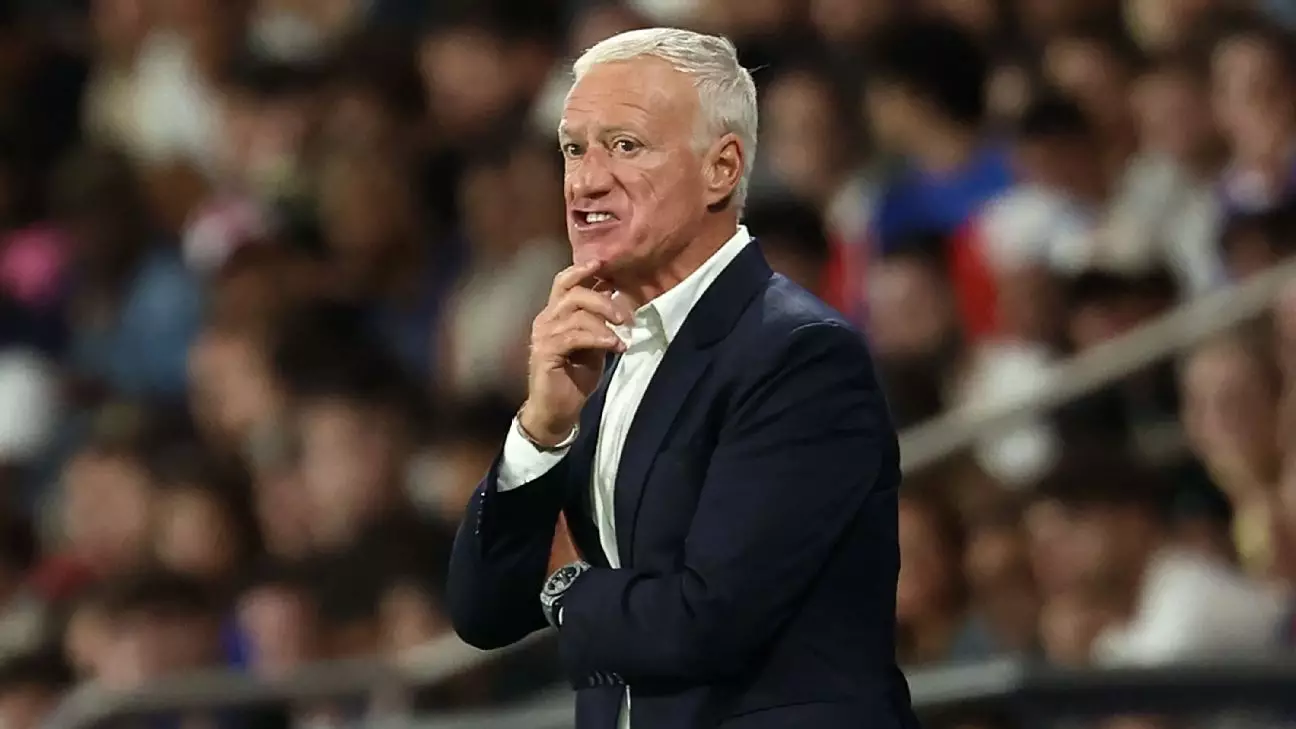The football world is abuzz with the news that Didier Deschamps, the iconic head coach of the French national team, is set to step down from his position following the conclusion of his current contract. As reported by ESPN, Deschamps’ departure will coincide with the culmination of the 2026 World Cup cycle, either after the tournament in North America should France secure a spot, or at the end of the qualifying campaign if they fail to qualify. His resignation marks the end of a significant chapter not only for him personally but also for French football as a whole.
Deschamps holds a remarkable legacy as the coach who transformed the fortunes of Les Bleus. Taking charge in 2012, he has guided the team through a golden era, highlighted by France clinching the 2018 World Cup and the Nations League title in 2021. With strong performances, he also led the team to the finals of the European Championships in 2016 and the World Cup finals in 2022, illustrating his ability to foster excellence on the international stage. Under his stewardship, France maintained an impressive win rate of 64.2%, a testament to his tactical acumen and the strong squad he cultivated.
The discussion surrounding Deschamps’ successor has steered much attention towards Zinedine Zidane, a legendary figure not only in French football but also globally. Zidane, who enjoyed a storied career as a player and a remarkably successful coaching stint at Real Madrid, is widely regarded as the frontrunner to take the reins. His deep understanding of the game and exceptional credentials could potentially make him a natural fit to continue the legacy that Deschamps has established.
As France prepares for the upcoming challenges, the path they take can significantly influence their transition. They will soon find out their group positioning for the qualification round following the conclusion of the Nations League, where they are set to face Croatia in the quarterfinals. This period will be critical as it not only sets the tone for the future leadership of the team but also poses pressing questions about the direction and continuity of the footballing philosophy that Deschamps has implemented throughout his tenure.
Deschamps’ impending departure raises a bittersweet sentiment among fans as they reflect on an era that brought French football back to the forefront of international competition. His unique achievements, including being one of only three individuals to have won the World Cup both as a player and coach, will be etched in history. As France transitions into this new phase, the focus will undoubtedly be on selecting a successor who can uphold and build upon the strategic brilliance and camaraderie that became synonymous with Deschamps’ reign. This leadership change beckons a thrilling new chapter in the annals of French football.

